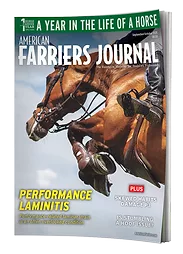Donkeys and horses in a southern Spanish town are accustomed to getting a lot of attention from tourists, but they'll notice a bit more activity starting this month.
Donkey taxi owners and horse-drawn carriage drivers must pass regular inspections under a new code of conduct that ensure that the animals are fit to ferry tourists around Mijas, Anadalucia. Those who fail to comply could face fines.
The code mandates that equines must be seen by a farrier every 2 months, a dentist once a year and undergo regular de-worming and vaccinations. Reports from the inspections must be recorded in a "passport" for each horse.
Town officials backed the code because horse-drawn carriages, and particularly donkey taxis, are key to Mijas' tourism industry. The code, which is an enhancement of an existing bylaw that was enacted in 2011, took effect Jan. 1.
"The bylaw speaks of the legal aspects and regulations regarding the service and the rights of the travelers, although the new code delves deeper into the way that the drivers must treat the animals in order that they be healthy, and in this way offer the service with better conditions," says Juan Carlos Gonzalez, councilor of public areas.
The Donkey Sanctuary, a British-based charity that helped draw up the rules with town officials, hailed the new code as an important first step in preserving the welfare of the animals.
"This is great news for donkeys in Spain, where welfare laws are not enforced by local authorities," says Andrew Judge, the head of European operations for The Donkey Sanctuary. "It is the first of many such welfare concerns that we will be working on in the coming year and where we will strive to have a similar outcome. We hope that it will lead to greater compassion and respect for these hard-working animals."
The code also mandates that stables and owners must "have adequate materials to be able to clean and check hooves daily. Any animal that returns limping or with any type of problem with its hooves or horseshoes must not be used for service."
Drivers must carry a first-aid kit that includes a saline solution, antibiotics, gauze and round pointed scissors to be able to treat any minor injuries.
Would you welcome similar regulations for horse-drawn carriages in the U.S.?
Share your comments below.







